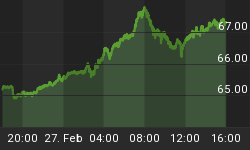U.S. car sales are up. It's easy to explain why: car buyers borrow more as standards loosen
The average loan on a new car climbed to $26,719 in the third quarter, up by $756 from a year earlier, and the most in at least five years, according to data collected by Experian Plc.
Despite borrowing so much more, average monthly payments on new car loans rose only $6 to $458. That is because banks and finance companies were willing to lend at lower rates and grant borrowers more time to repay.
Lenders made 26.04 percent of their loans on new cars to buyers with subprime credit scores, up from 24.84 percent a year earlier, said Experian, which collects car title and financing information to compile its reports. For loans on used cars, the portion to subprime borrowers rose to 54.95 percent from 54.43 percent.
As the lenders made bigger loans, they also extended credit further beyond the value of the vehicles. The average loan-to-value on new cars rose to 110.6 percent, up by 1.17 percentage points. On used cars it rose to 133.2 percent, up by 2.18 percentage points.
Auto lenders often provide loans that exceed the value of cars they are financing because borrowers want cash to pay sales taxes and fees.
Extra-long loans are becoming more common. Some 19 percent of new car loans were made for more than six years, up from 16.4 percent a year earlier.
The percentage of loans 30-days delinquent was down in the third quarter to 2.58 percent from 2.67 percent a year earlier, Experian said.
However, the average loss on loans gone bad jumped to $7,770 in the third quarter from $7,026 a year earlier and repossessions increased sharply, particularly for subprime borrowers.
Used Car Loans 133% LTV with 55% Subprime?!
Excuse me for asking, but didn't we try "lower-and-lower lending standards" once before? How did it work out? Can anyone tell me why it will be different this time?
Repossessions are up sharply, but who cares about that? No doubt the loans are sliced, diced, tranched, and securitized to make them appear as AAA. Pension funds are probably dumping gold to load up on them.
Auto lending, like housing in 2006, appears to be a no-lose proposition.
After all, the Fed is in complete control. Isn't it?















